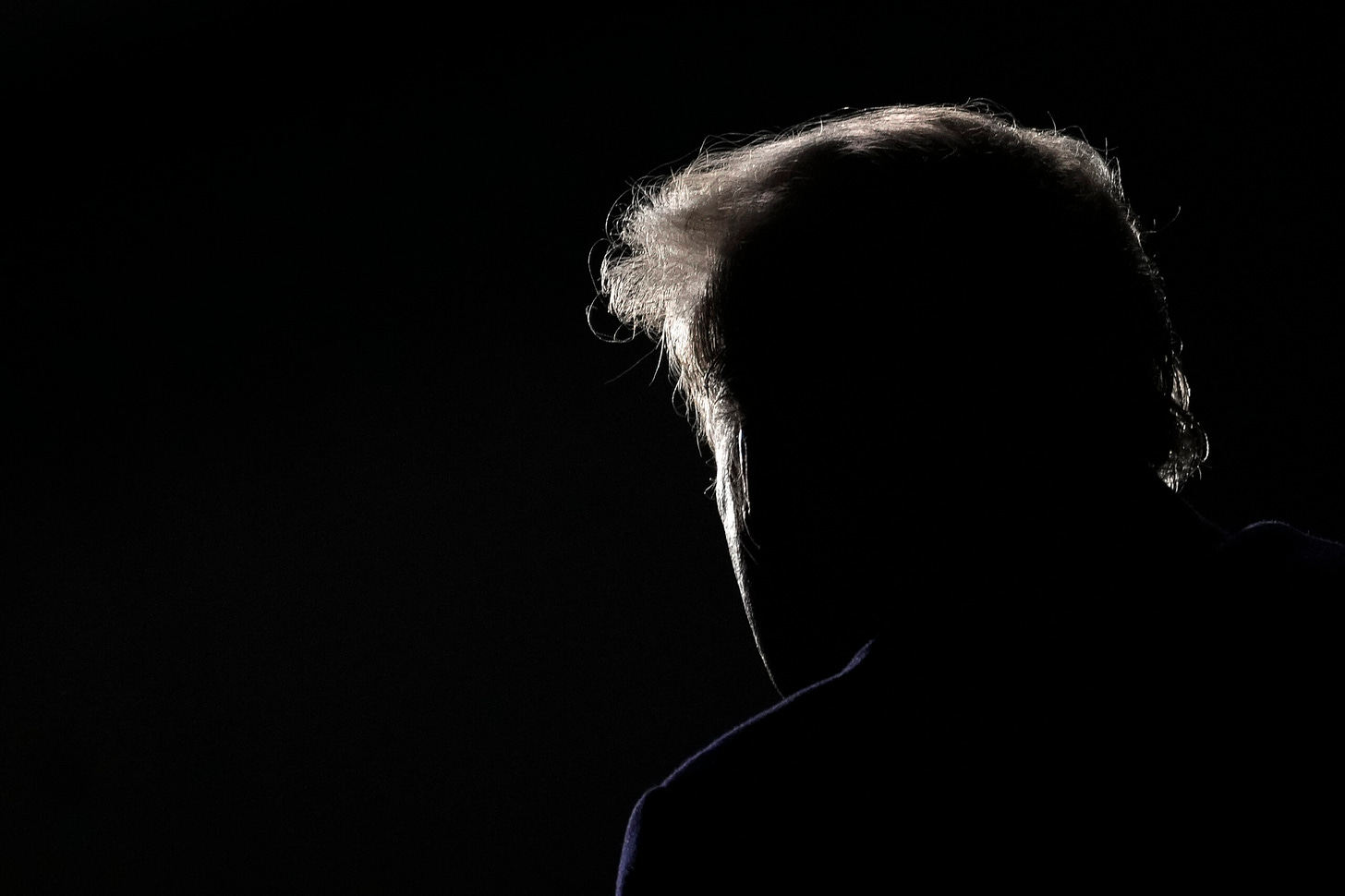The Real Reason Trump Runs
Pride and profit are bigger factors than policy—but there’s an even bigger reason.
Former President Donald Trump is expected to announce tonight that he will be a candidate for the presidency again in 2024. Two obvious questions come to mind: Why do it? and Why announce now?
There are any number of reasons Trump might have decided to try for something only Grover Cleveland has achieved before and retake the presidency after a term out of office. It’s hard to believe that he has any policy aims driving him, or that he feels he in any sense owes it to the Republican party or the MAGA faithful.
But it’s not at all difficult to believe that Trump may be driven by ego, pride, and the competitive instinct; he hates to lose and seems most energized when attacking his potential rivals. He also craves attention, wants to be center stage, and fears losing his place to Florida Governor Ron DeSantis, who proved a big winner in last week’s election while Trump—via his many failed endorsees—proved a big-time loser. He’s desperate to get the blame off his back and onto someone else’s.
And then there is greed. Trump is constantly looking for ways to mix politics and profit, and it’s likely that a “potential future president” can cut better deals than a mere “disgraced former president.” Yesterday, on the eve of his pre-announced announcement, news broke that his company signed a lucrative contract with a major Saudi developer to brand a golf-housing-hotel development in Muscat, Oman, with the Trump name.
For all the merit of those explanations, though, they pale in comparison to another: He’s scared witless at the possibility of prosecution. It seems likely that indictments are on their way from Fulton County, Georgia, District Attorney Fani Willis (over Trump’s interference in the 2020 election in Georgia) and from Attorney General Merrick Garland (over Trump’s purloined national security secrets taken to Mar-a-Lago).
By formally becoming a presidential candidate, Trump thinks he’ll get an edge on prosecutors. He craves his narrative: “Dems are trying to take down an announced Republican candidate for President. UNPRECEDENTED!”
Translation should be unnecessary: “I’m a martyr! Defend me! Go after them.” Of course, it won’t matter to Fani Willis or the DOJ. He’s in their sights, and they’ll do what they do.
The possibility of spending time—perhaps even his last years—in prison has got to be an enormous motivation for Trump to run. If he gets convicted in Georgia, even if re-elected, he can’t pardon himself for a state conviction. Only the State Board of Pardons and Paroles has that authority in Georgia. And guess who appoints its five members, and who they might want to please? Governor Brian Kemp, with whom Trump has a long-simmering feud over Kemp certifying Joe Biden’s 2020 win in Georgia. Trump may take solace in the fact that a jury pool in Fulton County might well have a few of his true believers on it. One or two might slip in among the twelve jurors, and they could hang the jury, however strong Willis’s case.
As for federal indictment, any trial of Trump will be brought in Washington, D.C. The Justice Department has a perfect record there in convicting the only three January 6th insurrectionists to try their luck before juries.
Not to mention that in July, a D.C. jury took three hours to convict Trump crony Steve Bannon of contempt for stiffing the House January 6th Committee about testifying. Three hours is warp speed for a verdict, barely enough time to get the jury-room coffee brewing and elect a foreperson.
In Trump’s shoes, who wouldn’t be scared? His fright is what explains his rejecting a laundry list of sound political reasons he had not to announce now, as aides and Republican leaders had counseled.
First, the country just sent an unmistakable message that his brand is burnt, at least for now. In a midterm election where the sitting president's party always suffers massive losses, Trump’s marquee “election-denier” candidates were losers—Mehmet Oz, Don Mastriano, Kristina Karamo, Kari Lake.
Second, Republicans are angry at Trump, blaming him for their poor showing in the midterms. Allowing time for the heat to drop would serve him well.
Third, money again: The Republican National Committee already announced that it would stop paying Trump’s legal bills if he formally became a candidate. Because he is being investigated on so many legal fronts, those bills are not pocket change.
And fourth, by formally announcing his candidacy, Trump loses the ability—legally at least!—to spend $100 million in PAC money however he wants. By law, the spending must not be associated with his campaign.
Trump giving up a dollar sooner than he has to is sure confirmation of fear. He hears the heavy footfall of the constable closing in behind him. He can’t stay still. He has to run.



